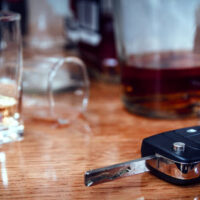Who Pays for Injuries Caused by a Drunk Driver?

Most Florida motorists know that they live in a no-fault state, but this can be a tough pill to swallow in cases where a person’s conduct was particularly reckless. For instance, even if a person is injured by a drunk driver, he or she will generally have to go through his or her own insurer for compensation. There are, however, exceptions to this rule, in which case, a plaintiff could seek damages directly from the drunk driver whose recklessness caused his or her injuries, so if you were injured in an accident with an intoxicated driver, you should contact an experienced Fort Lauderdale DUI accident lawyer who can help walk you through whether the at-fault driver in your own case can be held personally liable for your accident.
Florida’s No-Fault Auto Insurance Laws
In Florida, no-fault auto insurance laws mean that if a car accident occurs, both of the parties involved will be required to make claims with their own insurers, regardless of the degree of negligence of the parties. This is why Florida motorists are required to carry Personal Injury Protection (PIP) insurance, as it allows them to seek medical attention and pay for treatment as soon as possible. It does, however, have some restrictions. PIP insurance, for instance, only pays up to a certain amount, which is often surpassed in serious accidents. Fortunately, those who can demonstrate that their injuries qualify as serious could be able to file a lawsuit directly against the other driver. This is often the case for accident victims whose collisions were the result of a drunk driver’s negligence, as these types of crashes often result in particularly devastating injuries.
Bodily Injury Claims
Once an injured accident victim has exceeded the limits of his or her own policy, that individual can tap into the other motorist’s liability coverage. If that person’s policy limits are exceeded, however, or an injury is especially severe, a victim can pursue damages from the at-fault driver in court. To meet this threshold, a person’s injury must:
- Be permanent;
- Involve permanent disfigurement or scarring;
- Result in the permanent loss of a bodily function; or
- Be severe enough to cause death.
As we mentioned earlier, this threshold is often satisfied in drunk driving cases, which typically occur at high speeds or with little to no warning, leaving victims no time to react or try to avoid the collision. This means that victims of drunk driving accidents can often pursue damages against the at-fault party directly, seeking compensation for:
- Past, present, and future medical expenses;
- Lost wages;
- Loss of future income due to permanent disability;
- Property damage;
- Pain and suffering and emotional distress; and
- Permanent disfigurement.
While collecting these types of damages from a drunk driver may not be able to return an injured party to his or her former state of health, it can go a long way towards holding the at-fault driver accountable and helping injured victims obtain the help they need.
Were You Injured by a Drunk Driver?
If you were injured by a drunk driver in Florida and suffered severe injuries, you may have the right to file a claim against that person in court. Please call the experienced personal injury lawyers at Boone & Davis at 954-566-9919 today to learn more.
Resource:
leg.state.fl.us/statutes/index.cfm?App_mode=Display_Statute&URL=0600-0699/0627/Sections/0627.7407.html
